#Mannaseh
Text
So Nigerians want Obi
Let's talk a little about the just ended Nigerian presidential elections.
Being Ghanaian, our louder neighbours to the east tend to take up a lot of space in our collective consciousness, no matter how hard we try to mind our own business. In spite of our relative closeness, many of us who've never lived there for any length of time know very little about the ins and outs of Africa's most populous country.
It is from this seat of ignorance that I wish to opine on a thing that's caught my attention in the aftermath of Bola Tinubu's win.
It came to the fore of my thinking a few days back when a popular Ghanaian journalist, Manasseh Azure Awuni, tweeted a picture of Bola. It was a close up that emphasized his droopy lips, sleepy eyes and deeply wrinkled face. Take a look at it here.
The sentiment of that tweet was shared by the wider Twitter community, among whom Peter Obi, a younger contestant, seemed to have a lot of support. The general feeling can be summed up as: Africa's challenges are largely the result of poor leadership, and young blood is needed to guide the continent in the future.
Stated as fairly as I can, I find nothing immediately wrong with the diagnosis and proposed remedy. It's a pragmatic observation that some of the continent's leadership struggles are caused by leaders who are somewhat out of touch with what the youthful energies of their countries need to be galvanized for great exploits, so and so.
Fair enough, but there's the hard-to-ignore ageism and somewhat ironic lack of an inclination towards meritocratic solutions that deeply, very deeply, troubles me.
Take the tweet by a celebrated investigative journalist who is credited with exposing corruption at the highest levels of public office in Ghana. He tweets an unflattering picture of the winner of a national election (let's, for now, set aside the irregularities of their process: I'm a firm believer that all high-stakes contests are inherently corrupted) with a caption that reads "The fresh blood and mind to take over from old man Buhari."
Perhaps my reading of this is too critical. There should be, after all, room for humour. But Manasseh seems here to stoop low and criticize the competencies of Bola and Buhari in reference to their age, rather than their past actions and, perhaps, character in previously held offices.
It felt like a cheap shot to take from a prominent media figure, no different from how famous Western media houses despoiled themselves during the Donald Trump presidential campaign and term in office.
But it gets deeper than Manasseh.
Following the conversation on one multinational WhatsApp group showed me hints that my ill-feeling about the nature of the wave of negative sentiment following Tinubu's win was justified.
It came to a head when one of my peers suggested that the death penalty be handed out for corruption, to rid us all of the canker. No be small Rawlings vibes.
Anyone who has witnessed something as petty as SRC elections on any large-enough college campus in Ghana will know that the problem with corruption and poor leadership in the country, Nigeria, and most of the continent has little to do with age.
This was something I learned in my first term in high school, a truth I have validated since at all levels of my education and even in the cutthroat world of tech business, dominated by young change makers.
I don't think we're ready.
0 notes
Text
The origin and history of the KUKI-CHIN-MIZO people of North east India, parts of Bangladesh and Burma can be traced back to the downfall of the Kingdom of Israel. The mannaseh tribe of Israel was among the captives of war after their defeat. They were taken as slaves in China and made to build the Great Wall.
Though the people were robbed of their religious scrolls, they still follow their religion and observe the days by heart.
Now after that generation had all died, their sons and their son’s sons too. The new generation eventually forgot who they were.and were utterly clueless of their God, YAHWEH. Thus they became the lost tribes of Israel. ( Israel has 12 tribes and 10 are lost as of today)
One day a hunter discovered an escape route away from slavery and bondage. They started making plans and the plan was put into action under the leadership of 2 brothers , pu Songthu and songja. They were divided into two groups each led by these brothers. The first group cut tree branches to mark their passage for the latter. However unfortunately they got separated and landed in different destinations.
The people landed in present day north east, parts of burma and Bangladesh. Though they had forgotten their God, he didn’t forget them. He gave them hills ranger after ranger , green as far as the eye can see. Those hills came to be knows as ZALENGAM zalen meaning free and gam meaning land. and lost people were now called KUKI. Thus the kuki people for centuries settled in the land of the free.
7 notes
·
View notes
Text
Genesis 48: Jacob Blesses Mannaseh And Ephraim
Overview:
Joseph heard the news that his father is getting weaker, so he went to see him with his two sons, Manneseh and Ephraim. Manneseh was the youngest and Ephraim was the oldest. When Joseph met his father, he let the boys sit beside each side of his father. On the right was Manneseh, while on his left was Ephraim. Jacob put his right hand on Manneseh even though he was the youngest, Joseph was upset about this. But Jacob explained he knew.
Jacob blessed the two boys like his own sons, and told Joseph they will become great nations.
Points To Remember:
Rachel died in Eprath, also called Bethlehem.
Joseph had two sons named Manneseh and Ephraim.
Jacob gave Joseph an extra portion of the land that he took from the Amorites.
Lessons Learned:
It does not matter whether you are the firstborn and it is okay. Not all firstborns get the special gift and blessing.
But, God will still bless his people no matter what.
0 notes
Text
Conference of Speakers Chairman, Ogundoyin Meets Plateau Governor, Mutfwang, Advances His Campaign For Effective State Legislatures
As part of his nationwide campaign to enhance legislative institution at the State level, the Chairman, Conference of Speakers of State Legislatures, Hon. Adebo Ogundoyin on Friday in Jos held a fruitful meeting with the Governor of Plateau State, Barr. Caleb Mannaseh Mutfwang.
Hon. Adebo Ogundoyin said the meeting provided opportunity for him to advance his campaign for robust State legislative…

View On WordPress
0 notes
Photo
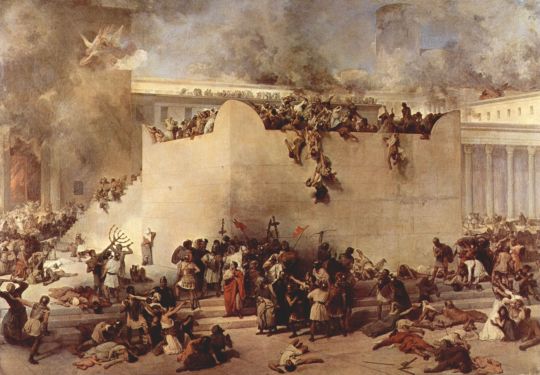
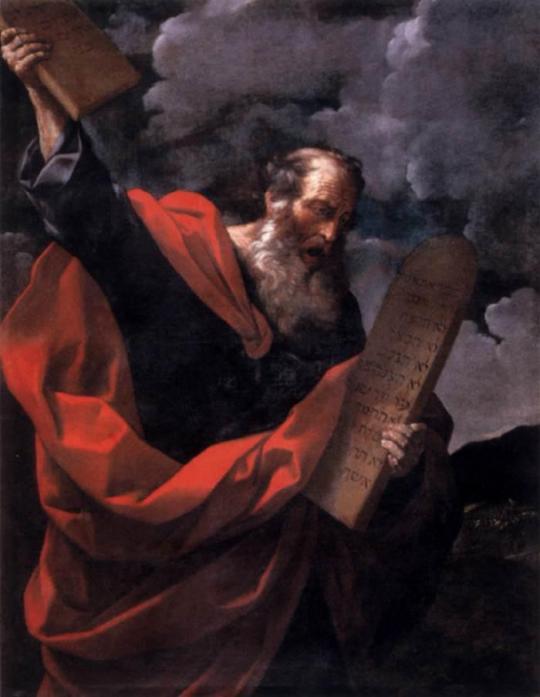
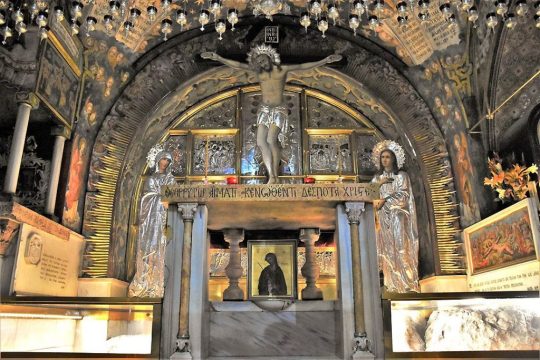
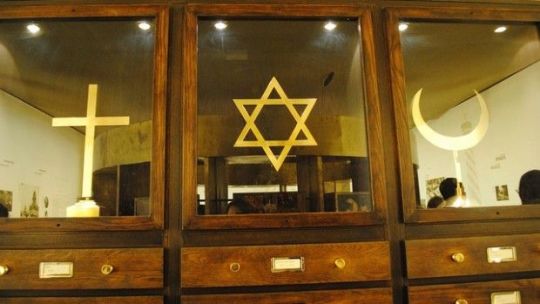
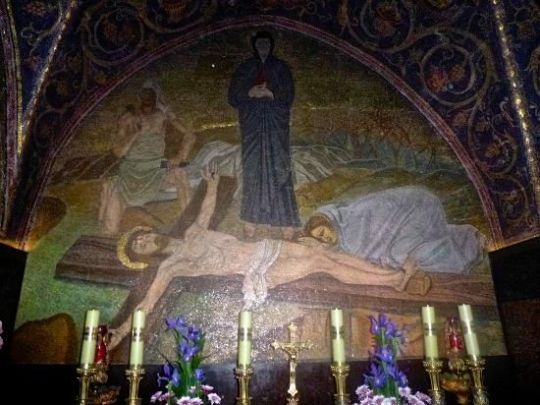
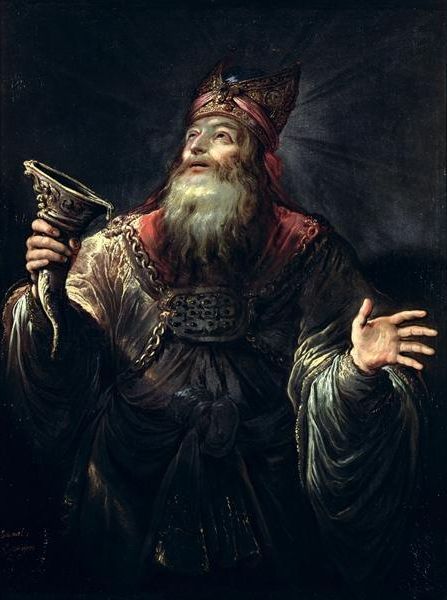
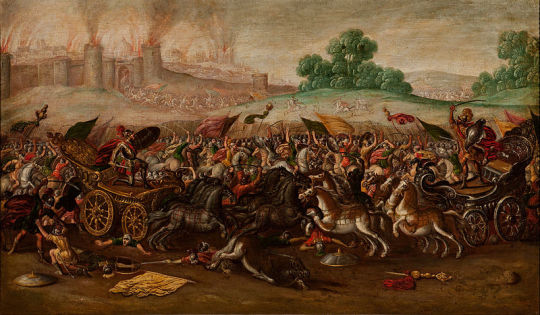
The desire of the meek ones you will certainly hear, O Jehovah. You will prepare their heart. You will pay attention with your ear, to judge the fatherless boy and the crushed one, that mortal man who is of the earth may no more cause trembling...
“The sin of Judah is written down with an iron stylus. With a diamond point it is engraved on the tablet of their heart, and on the horns of their altars, when their sons remember their altars and their sacred poles beside a luxuriant tree, upon the high hills, [on] the mountains in the field. Your resources, all your treasures, I shall give for mere plunder—your high places because of sin throughout all your territories. And you let loose, even of your own accord, from your hereditary possession that I had given you. I also will make you serve your enemies in the land that you have not known; for as a fire YOU people have been ignited in my anger. To time indefinite it will keep kindled.”
This is what Jehovah has said: “Cursed is the able-bodied man who puts his trust in earthling man and actually makes flesh his arm, and whose heart turns away from Jehovah himself. And he will certainly become like a solitary tree in the desert plain and will not see when good comes; but he must reside in parched places in the wilderness, in a salt country that is not inhabited. Blessed is the able-bodied man who puts his trust in Jehovah, and whose confidence Jehovah has become. And he will certainly become like a tree planted by the waters, that sends out its roots right by the watercourse; and he will not see when heat comes, but his foliage will actually prove to be luxuriant. And in the year of drought he will not become anxious, nor will he leave off from producing fruit.
“The heart is more treacherous than anything else and is desperate. Who can know it? I, Jehovah, am searching the heart, examining the kidneys, even to give to each one according to his ways, according to the fruitage of his dealings. [As] the partridge that has gathered together what it has not laid is the one making riches, but not with justice. At the half of his days he will leave them, and in his finale he will prove to be senseless.”
There is the glorious throne on high from the start; it is the place of our sanctuary. O Jehovah, the hope of Israel, all those who are leaving you will be put to shame. Those apostatizing from me will be written down even in the earth, because they have left the source of living water, Jehovah. Heal me, O Jehovah, and I shall be healed. Save me, and I will be saved; for you are my praise.
Look! There are those saying to me: “Where is the word of Jehovah? Let it come in, please.” But as for me, I did not hasten from being a shepherd following you, and for the desperate day I did not show any craving. You yourself have known the expression of my lips; in front of your face it has occurred. Do not become something terrifying to me. You are my refuge in the day of calamity. Let my persecutors be put to shame, but let me personally be put to no shame. Let them be the ones to be struck with terror, but let me personally not be struck with terror. Bring upon them the day of calamity, and break them even with twice as much breakdown.
This is what Jehovah has said to me: “Go, and you must stand in the gate of the sons of the people by which the kings of Judah enter in and by which they go out, and in all the gates of Jerusalem. And you must say to them, ‘Hear the word of Jehovah, YOU kings of Judah and all Judah and all YOU inhabitants of Jerusalem, who are entering in by these gates. This is what Jehovah has said: “Watch out for YOUR souls, and do not carry on the sabbath day any load that YOU must bring in through the gates of Jerusalem. And YOU must bring no load out of YOUR homes on the sabbath day; and no work at all must YOU do. And YOU must sanctify the sabbath day, just as I commanded YOUR forefathers; but they did not listen or incline their ear, and they proceeded to harden their neck in order not to hear and in order to receive no discipline.”’
“‘“And it must occur that, if YOU strictly obey me,” is the utterance of Jehovah, “to bring in no load through the gates of this city on the sabbath day and to sanctify the sabbath day by not doing on it any work, there will also certainly enter in by the gates of this city kings with princes, sitting on the throne of David, riding in the chariot and upon horses, they and their princes, the men of Judah and the inhabitants of Jerusalem; and this city will certainly be inhabited to time indefinite. And people will actually come from the cities of Judah and from round about Jerusalem and from the land of Benjamin and from the lowland and from the mountainous region and from the Neg’eb, bringing whole burnt offering and sacrifice and grain offering and frankincense and bringing thanksgiving sacrifice into the house of Jehovah.
“‘“But if YOU will not obey me by sanctifying the sabbath day and not carrying a load, but there is a coming in [with it] through the gates of Jerusalem on the sabbath day, I will also set a fire ablaze in her gates, and it will certainly devour the dwelling towers of Jerusalem and will not be extinguished.”’”
And Jehovah proceeded to say to me: “If Moses and Samuel were standing before me, my soul would not be toward this people. There would be a sending of them away from before my face, that they might go out. And it must occur that should they say to you, ‘Where shall we go out to?’ you must also say to them, ‘This is what Jehovah has said: “Whoever is for deadly plague, to deadly plague! And whoever is for the sword, to the sword! And whoever is for the famine, to the famine! And whoever is for the captivity, to the captivity!”’
“‘And I will commission over them four families,’ is the utterance of Jehovah, ‘the sword to kill, and the dogs to drag away, and the flying creatures of the heavens and the beasts of the earth to eat and to bring to ruin. And I will give them for a quaking to all the kingdoms of the earth on account of Ma·nas’seh the son of Hez·e·ki’ah, the king of Judah, for what he did in Jerusalem. For who will show compassion upon you, O Jerusalem, and who will sympathize with you, and who will turn aside to ask about your welfare?’
“‘You yourself have deserted me,’ is the utterance of Jehovah. ‘Backwards is the way you keep walking. And I shall stretch out my hand against you and bring you to ruin. I have got tired of feeling regret. And I shall winnow them with a fork in the gates of the land. I shall certainly bereave [them] of children. I will destroy my people, [since] they have not turned back from their own ways. To me their widows have become more numerous than the sand grains of the seas. I will bring for them, upon mother, young man, the despoiler at midday. I will cause to fall upon them suddenly excitement and disturbances. The woman giving birth to seven has faded away; her soul has struggled for breath. Her sun has set while it is yet day; it has become ashamed and felt abashed.’ ‘And to the sword I shall give the mere remnant of them before their enemies,’ is the utterance of Jehovah.”
Woe to me, O my mother, because you have given birth to me, a man subject to quarrel and a man subject to strife with all the earth. I have given no loan, and they have given me no loan. All of them are calling down evil upon me.
Jehovah has said: “Surely I will minister to you for good. Surely I will intercede for you in the time of calamity and in the time of distress, against the enemy. Can one break iron in pieces, iron out of the north, and copper? Your resources and your treasures I shall give for mere plunder, not for a price, but for all your sins, even in all your territories. And I will cause [them] to pass over with your enemies into a land that you have not known. For a fire itself has been ignited in my anger. Against YOU people it is kindled.”
You yourself have known. O Jehovah, remember me and turn your attention to me and avenge me upon my persecutors. In your slowness to anger do not take me away. Take note of my bearing reproach on account of your own self. Your words were found, and I proceeded to eat them; and your word becomes to me the exultation and the rejoicing of my heart; for your name has been called upon me, O Jehovah God of armies. I have not sat down in the intimate group of those playing jokes and begun exulting. Because of your hand I have sat down all by myself, for it is with denunciation that you have filled me. Why has my pain become chronic and my stroke incurable? It has refused to be healed. You positively become to me like something deceitful, like waters that have proved untrustworthy.
Therefore this is what Jehovah has said: “If you will come back, then I shall bring you back. Before me you will stand. And if you will bring forth what is precious from valueless things, you will become like my own mouth. They themselves will come back to you, but you yourself will not come back to them.”
“And I have made you to this people a fortified copper wall; and they will certainly fight against you, but they will not prevail over you. For I am with you, to save you and to deliver you” is the utterance of Jehovah. “And I will deliver you out of the hand of the bad ones, and I will redeem you out of the palm of the tyrannical ones.”
And the word of Jehovah continued to occur to me, saying: “You must not take for yourself a wife, and you must not come to have sons and daughters in this place. For this is what Jehovah has said concerning the sons and concerning the daughters that are born in this place, and concerning their mothers who are giving them birth and concerning their fathers who are causing their birth in this land, ‘With deaths from maladies they will die. They will not be bewailed, neither will they be buried. As manure upon the surface of the ground they will become; and by the sword and by famine they will come to an end, and their dead bodies will actually serve as food for the flying creatures of the heavens and for the beasts of the earth.’
“For this is what Jehovah has said, ‘Do not enter into the house of a mourners’ feast, and do not go to bewail and do not sympathize with them.’
“‘For I have taken away my peace from this people,’ is the utterance of Jehovah, ‘even loving-kindness and mercies. And they will certainly die, the great ones and the small ones, in this land. They will not be buried, neither will people beat themselves for them, nor will anyone make cuts upon himself or make himself bald for them. And they will not deal out to them any bread on account of mourning to comfort someone over the dead; neither will they give them the cup of consolation to drink on account of one’s father and on account of one’s mother. And you must enter no house of banqueting at all to sit down with them to eat and to drink.’
“For this is what Jehovah of armies, the God of Israel, has said, ‘Here I am causing to cease out of this place before the eyes of YOU people and in YOUR days the voice of exultation and the voice of rejoicing, the voice of the bridegroom and the voice of the bride.’
“And it must occur that, when you tell to this people all these words and they actually say to you, ‘On what account has Jehovah spoken against us all this great calamity, and what is our error and what is our sin with which we have sinned against Jehovah our God?’ you must also say to them, ‘“On account of the fact that YOUR fathers left me,” is the utterance of Jehovah, “and they kept going after other gods and serving them and bowing down to them. But me they left, and my law they did not keep. And YOU yourselves have acted worse in YOUR doing than YOUR fathers, and here YOU are walking each one after the stubbornness of his bad heart in not obeying me. And I will hurl YOU out from off this land into the land that YOU yourselves have not known, neither YOUR fathers, and there YOU will have to serve other gods day and night, because I shall not give YOU any favor.”’
“‘Therefore, look! days are coming,’ is the utterance of Jehovah, ‘when it will no more be said: “As Jehovah is alive who brought the sons of Israel up out of the land of Egypt!” but: “As Jehovah is alive who brought the sons of Israel up out of the land of the north and out of all the lands to which he had dispersed them!” and I shall certainly bring them back to their soil, which I gave to their forefathers.’
“‘Here I am sending for many fishers,’ is the utterance of Jehovah, ‘and they will certainly fish for them; and afterward I shall send for many hunters, and they will certainly hunt them from every mountain and from every hill and out of the clefts of the crags. For my eyes are upon all their ways. They have not been concealed from before me, neither has their error been hid from in front of my eyes. And, first of all, I will repay the full amount of their error and of their sin, on account of their profaning my land. With the corpses of their disgusting things and their detestable things they had filled my inheritance.’”
O Jehovah my strength and my stronghold, and my place for flight in the day of distress, to you the nations themselves will come from the ends of the earth, and they will say: “Indeed our forefathers came to possess sheer falsehood, vanity and things in which there was nothing beneficial.” Can earthling man make for himself gods when they are no gods?
“Therefore here I am causing them to know; at this one time I shall cause them to know my hand and my mightiness, and they will have to know that my name is Jehovah.”
Jeremiah 17 & 15-16, NWT
MY EYES ARE UPON ALL THEIR WAYS: More Corpses of Their Disgusting Things
#Jehovah#God#Bible#Scripture#Prophecy#Jeremiah#Moses#Samuel#Judah#Israel#Jerusalem#Negeb#Benjamin#Egypt#Mannaseh#Hezekiah#Sabbath#Curse#Art#Religious Art#Francesco Hayez#Juan de la Corte#News#Current Events
2 notes
·
View notes
Photo

#Repost @ahshar_asher (@get_repost) ・・・ #Judah#Benjamin#Simeon#Zebulon#Ephraim#Mannaseh#Gad#Reuben#Naphtali#Asher#Issachar#gms#gmsthethrut#gms💯#esau#edomitesarethedevil#edomites#caucasian#caucasians#whitesupremacy#blancos#yahawahbahashamyahawashi https://www.instagram.com/p/B_cFevpFGuP/?igshid=1brlztqq5t1ub
#repost#judah#benjamin#simeon#zebulon#ephraim#mannaseh#gad#reuben#naphtali#asher#issachar#gms#gmsthethrut#gms💯#esau#edomitesarethedevil#edomites#caucasian#caucasians#whitesupremacy#blancos#yahawahbahashamyahawashi
0 notes
Text
Take Action Now: Activists jailed for anti-President T-shirts (Nigeria)

Activists Larry Emmanuel, Anene Victor Udoka, Samuel Gabriel, Henry Nwodo, and Ben Mannaseh are being arbitrarily detained in connection to their peaceful activism. On July 4, 2021 they attended a church service at the Dunamis International Gospel Center in Abuja, the Nigerian capital, when they were arrested and beaten by the Center’s security unit for wearing #BuhariMustGo T-shirts.
In detention, they have been denied access to their lawyers and family and are at risk of torture and other ill-treatment. Nigerian authorities must immediately and unconditionally release them, in accordance with a court order.
Earlier this year, in April 2021, Larry Emmanuel and Anene Victor Udoka were beaten and jailed in Kogi state for peacefully protesting, holding placards and distributing posters. They were released on June 18, 2021 after spending 72 days in prison.
The right to freedom of expression has come under severe attack in Nigeria. Young people have activated the power of peaceful protests to demand justice for police abuses, extortion and extra-judicial executions while the authorities continue to repress them. Human rights defenders, lawyers and civil society organizations are now left with few alternative channels to demand accountability from the government. Those who attempt to exercise their right to peacefully protest on the streets are being repressed, and many have faced arbitrary detention, torture, and trumped-up charges.
Take action now - call on the Nigerian authorities to release Larry Emmanuel, Anene Victor Udoka, Samuel Gabriel, Henry Nwodo, and Ben Mannaseh. Please write before September 22 2021
16 notes
·
View notes
Quote
I like how, ever since I left home and even now that I'm back, mournful love songs at night woo the stories out of me. It's like they're finally comfortable to speak when everything falls silent and asleep. My heart resonates so deeply with the peaceful space between a spent day and an unlived one. There are no expectations here. Some reflections, aspirations, and the calm of having to neither solidify nor fulfill these. Just me and my eclectic playlist dancing with my drafts.
Xenia Mannaseh
Suddenly doubting my music taste?
#writing#writer#write#writers#written#free write#writeblr#writeaway#spilled ink#short piece#Short pieces#shortpiece#tis_peach#ni_nasieku
3 notes
·
View notes
Audio
Nu roots for the New Year from man like Skari, produced by Nick Mannaseh
3 notes
·
View notes
Photo


The murder of Martha Ray (1742-1779)
Martha Ray was the daughter of corset-maker and a maid in a noble household. Whilst her origins were not much to brag about, her talent for singing, good looks and hearty wit were. Her father’s customers noticed her various attractive assets and her name soon came to the attention of John Montagu, 4th Earl of Sandwich, a great connoisseur of pretty women and previously a long-term lover of the famous 18th century courtesan, Fanny Murray. Martha and the Earl instantly hit it off and she became his mistress when she was 17.
It was through her relationship with the Earl of Sandwich that Martha came to prominence as a respected and professional opera singer. Sandwich set her up in a fine house in Westminster and paid for her to have singing lessons from the 18th century’s greatest music masters. And whilst the pay-off for her relationship was inducement enough for Martha Ray to stay attached to the Earl, the pair do seem to have been genuinely in love and Martha remained with him for almost two decades and comforted him in dealing with the seeming insanity of his wife (who was kept out of the public eye). Martha and Sandwich lived together as husband and wife, and she gave birth to nine of his children.
It was during this period that Martha came to be introduced to one James Hackman, a soldier who had left the British army to train as an Anglican clergyman. Hackman met Martha when he visited the Earl of Sandwich’s Cambridgeshire home and was instantly besotted with her. Martha was flattered by his attentions at first and the two were briefly lovers. Sandwich was in debt at this point and Hackman may have provided Martha with some financial security in this period of instability. However, Hackman was becoming obsessed, frequently proposing marriage to her even after she had refused, and by early 1779, she had broken off the relationship.
On the 7th April 1779, Martha attended a performance of Isaac Bickerstaffe’s comic opera ‘Love in a Village’ at the Theatre Royal in Covent Garden, with her friend and fellow opera singer, Caterina Galli. The pair were also accompanied by a few gentlemen, and Martha sat next to or near William Hanger, 3rd Baron Coleraine for the performance. Hackman was also in attendance, recently ordained as a priest for the Church of England and hoping desperately to win Martha back, but once he saw Martha talking with Coleraine and convinced himself they had recently become lovers, he left immediately in a jealous rage, fetched two pistols, and waited in a coffee house near to the theatre. As Martha and Caterina were leaving the theatre and were about to get into their waiting carriage, Hackman jumped out, pulled Martha to face him and shot her, point-blank, in the head. She died instantly. Hackman then proceeded to try and shoot himself, but was unsuccessful. Witnesses reported seeing him beating himself with the guns after his failed attempt and shouting ‘Oh, kill me! For god’s sake, kill me.’ Martha’s body was taken to the Shakespeare Tavern whilst Hackman was arrested. After hearing of her murder, Sandwich wept for hours. He was devastated.
Hackman’s crime and subsequent trial caused a sensation. It was reported that anyone wishing to view the trial could pay one guinea to watch it from the gallery. On Hackman’s person had been found two letters: one addressed to his brother-in-law, Frederick Booth, in which Hackman appeared to bid his last farewells, clearly indicating the murder had been premeditated somewhat, and another love letter addressed to Martha Ray herself. When asked to give evidence himself, Hackman’s statement (probably written by one of his supporters, James Boswell) argued that he had only meant to kill himself, that he had not been himself mentally and that the love letter to Martha proved how much he had cared for her. This is what his defence counsel argued and they submitted to the court that Hackman could not be guilty of murder on account of diminished responsibility (in this case, insanity). Indeed, Hackman’s lawyer, Mannaseh Dawes argued that Martha had unfairly led Hackman on and forced him into desperation. The judge, however, dismissed all this and argued that the second letter to Hackman’s brother-in-law showed him to be of sound mind at the time and that he had committed the murder with a coolness of attitude. The jury agreed, and Hackman was found guilty of murder and sentenced to death. He was hanged at Tyburn on the 19th April, 1779, in front of a large crowd of people, many of whom were said to have pitied him believing him to be under the influence of ‘love and madness,’ though many still regarded him as the ‘vilest of men.’
Martha Ray’s murder continued to cause controversy in the following decades. Some believed her to have been deserving of her fate because of her loose nature and immoral relationship with Sandwich. James Boswell, one of Hackman’s most ardent supporters, believed that Hackman was simply a victim of aristocratic corruption and feminine wiles. In 1780, Herbert Croft published his novel ‘Love and Madness, a Story too True: in a Series of Letters between Parties Whose Names Would Perhaps be Mentioned Were They Less Known or Lamented.’ It claimed to be a collection of letters sent between Martha and Hackman, but most, if not all, were forged, and it presented Hackman as a romantic hero wronged by an ungrateful, sexually provocative mistress. The book was incredibly popular and proved a great source of upset for the Earl of Sandwich, whose political opponents often used the novel to antagonise and undercut him.
166 notes
·
View notes
Text
Fri 7/15/22
God: Come Follow Me: I studied this week's lesson. It's amazing how merciful God is through honest repentance he can sense through our hearts. He went through Kings both righteous and wicked and showed grace to all kingdoms as long as they were repentant. Mannaseh was evil in the sight of God but he repented and knew God once more. God's mercy extended to him even though his sins were worse than the heathens that God slayed.
0 notes
Text
24th Nov. 2021.
Protesters infront of Solomon Islands Parliament House. Solomon Islanders makes a peaceful protest for the current Prime Minister Hon. Mannaseh Sogavare to step down from leadership.
Situation further escalated later that day, results in Burning of Chinese Shops at ChinaTown and Kukum along with the Kukum Traffic Police Station, Honiara High School set on fire and Marines Oceania Center later burnt down at around 2am.
Prime Minister Sogavare ordered a 36 hours curfew from 7pm 24th to 7am 26 Nov. RSIPF neutralize the situation but the atmosphere's still tense. #solomon_Islands
PC: ZFM FBPAGE









0 notes
Photo

Rutherford Comprehensive School for Boys, Penfold Street Marylebone (1960) by Leonard Mannaseh & Partners
Image from Architects Journal
59 notes
·
View notes
Photo
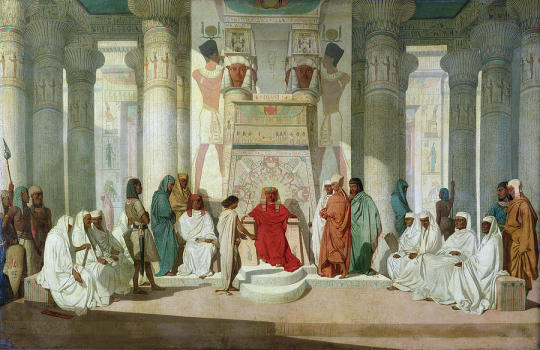
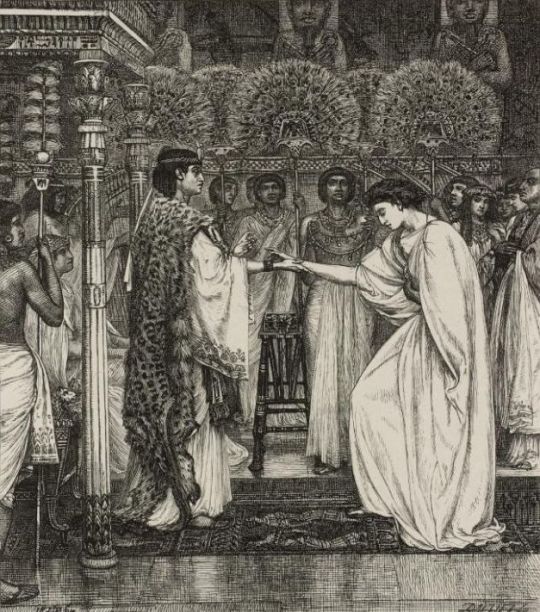
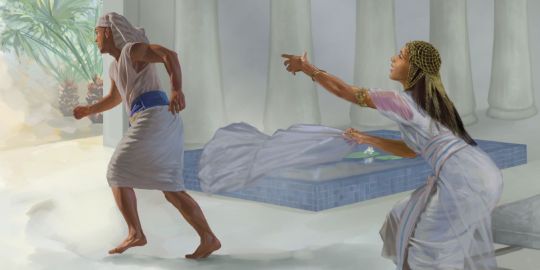
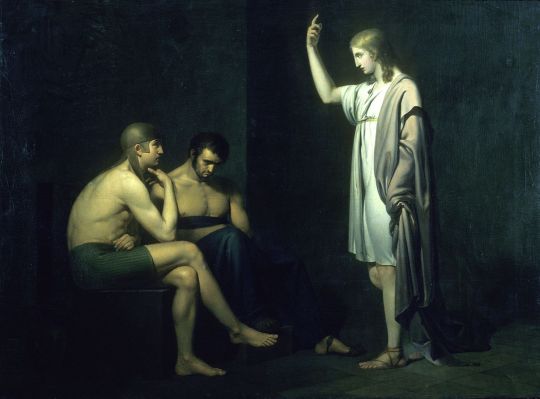
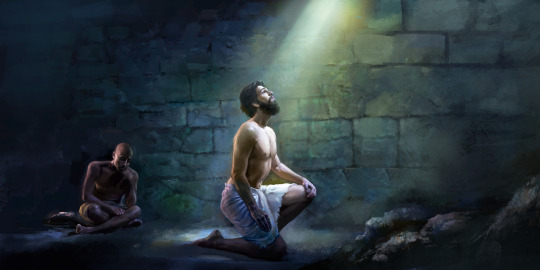
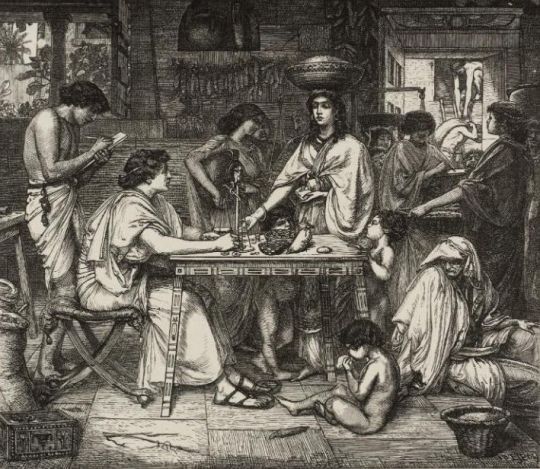
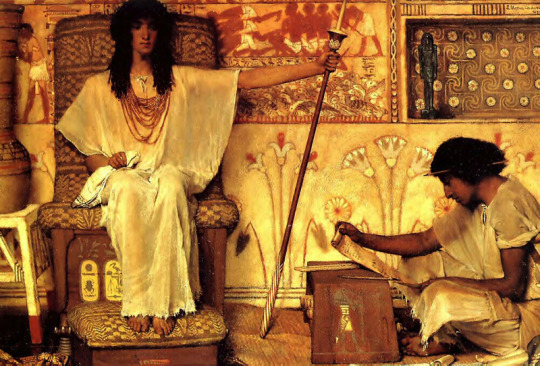
God makes a home for the lonely; He leads out the prisoners into prosperity, Only the rebellious dwell in a parched land...
As for Joseph, he was brought down to Egypt, and Pot’i·phar, a court official of Phar’aoh, the chief of the bodyguard, an Egyptian, got to buy him from the hand of the Ish’ma·el·ites who had brought him down there. But Jehovah proved to be with Joseph, so that he turned out a successful man and came to be over the house of his master, the Egyptian. And his master got to see that Jehovah was with him and that everything he was doing Jehovah was making turn out successful in his hand.
And Joseph kept finding favor in his eyes and waited upon him continually, so that he appointed him over his house, and all that was his he gave into his hand. And it followed that from the time he appointed him over his house and in charge of all that was his Jehovah kept blessing the house of the Egyptian due to Joseph, and Jehovah’s blessing came to be upon all that he had in the house and in the field. Finally he left everything that was his in Joseph’s hand; and he did not know what was with him at all except the bread he was eating. Moreover, Joseph grew to be beautiful in form and beautiful in appearance.
Now after these things it came about that the wife of his master began to raise her eyes toward Joseph and say: “Lie down with me.” But he would refuse and would say to his master’s wife: “Here my master does not know what is with me in the house, and everything he has he has given into my hand. There is no one greater in this house than I am, and he has not withheld from me anything at all except you, because you are his wife. So how could I commit this great badness and actually sin against God?”
So it turned out that as she spoke to Joseph day after day he never listened to her to lie alongside her, to continue with her. But it happened that on this day as other days he went into the house to do his business, and there was none of the men of the house there in the house. Then she grabbed hold of him by his garment, saying: “Lie down with me!” But he left his garment in her hand and took to flight and went on outside. So it occurred that as soon as she saw that he had left his garment in her hand that he might flee outside, she began to cry out to the men of her house and to say to them: “Look! He brought to us a man, a Hebrew, to make us a laughingstock. He came to me to lie down with me, but I began to cry out at the top of my voice. And it followed that as soon as he heard that I raised my voice and began crying out, he then left his garment beside me and took to flight and went on outside.” After that she kept his garment laid up beside her until his master came to his house.
Then she spoke to him according to these words, saying: “The Hebrew servant whom you brought to us came to me to make me a laughingstock. But it followed that as soon as I raised my voice and began to cry out, he then left his garment beside me and went fleeing outside.” The result was that as soon as his master heard the words of his wife which she spoke to him, saying: “Like this and this your servant did to me,” his anger blazed. So Joseph’s master took him and gave him over to the prison house, the place where the prisoners of the king were kept under arrest, and he continued there in the prison house.
However, Jehovah continued with Joseph and kept extending loving-kindness to him and granting him to find favor in the eyes of the chief officer of the prison house. So the chief officer of the prison house gave over into Joseph’s hand all the prisoners who were in the prison house; and everything that they were doing there he proved to be the one having it done. The chief officer of the prison house was looking after absolutely nothing that was in his hand, because Jehovah was with [Joseph] and what he was doing Jehovah was making it turn out successful.
Now after these things it came about that the cupbearer of the king of Egypt and the baker sinned against their lord the king of Egypt. And Phar’aoh grew indignant at his two officers, at the chief of the cupbearers and at the chief of the bakers. So he committed them to the jail of the house of the chief of the bodyguard, to the prison house, the place where Joseph was a prisoner. Then the chief of the bodyguard assigned Joseph to be with them that he might wait upon them; and they continued in jail for some days.
And both of them proceeded to dream a dream, each one his own dream in the one night, each one his dream with its own interpretation, the cupbearer and the baker who belonged to the king of Egypt who were prisoners in the prison house. When Joseph came in to them in the morning and saw them, why, here they were looking dejected. And he began to inquire of the officers of Phar’aoh who were with him in the jail of his master’s house, saying: “For what reason are YOUR faces gloomy today?” At this they said to him: “We have dreamed a dream, and there is no interpreter with us.” So Joseph said to them: “Do not interpretations belong to God? Relate it to me, please.”
And the chief of the cupbearers went on to relate his dream to Joseph and to say to him: “In my dream, why, here there was a vine before me. And on the vine there were three twigs, and it was apparently sprouting shoots. Its blossoms pushed forth. Its clusters ripened their grapes. And Phar’aoh’s cup was in my hand, and I proceeded to take the grapes and squeeze them out into Phar’aoh’s cup. After that I gave the cup into Phar’aoh’s hand.” Then Joseph said to him: “This is its interpretation: The three twigs are three days. In three days from now Phar’aoh will lift up your head and he will certainly return you to your office; and you will certainly give Phar’aoh’s cup into his hand, according to the former custom when you acted as his cupbearer. Nevertheless, you must keep me in your remembrance as soon as it goes well with you, and you must, please, perform loving-kindness with me and mention me to Phar’aoh, and you must get me out of this house. For I was in fact kidnapped from the land of the Hebrews; and here also I have done nothing at all for which they should put me in the prison hole.”
When the chief of the bakers saw that he had interpreted something good, he, in turn, said to Joseph: “I too was in my dream, and here there were three baskets of white bread upon my head, and in the topmost basket there were all sorts of eatables for Phar’aoh, the product of a baker, and there were fowls eating them out of the basket on top of my head.” Then Joseph answered and said: “This is its interpretation: The three baskets are three days. In three days from now Phar’aoh will lift up your head from off you and will certainly hang you upon a stake; and the fowls will certainly eat your flesh from off you.”
Now on the third day it turned out to be Phar’aoh’s birthday, and he proceeded to make a feast for all his servants and to lift up the head of the chief of the cupbearers and the head of the chief of the bakers in the midst of his servants. Accordingly he returned the chief of the cupbearers to his post of cupbearer, and he continued to give the cup into Phar’aoh’s hand. But the chief of the bakers he hung up, just as Joseph had given them the interpretation. However, the chief of the cupbearers did not remember Joseph and went on forgetting him.
And it came about at the end of two full years that Phar’aoh was dreaming and here he was standing by the river Nile. And here ascending out of the river Nile were seven cows beautiful in appearance and fat-fleshed, and they went feeding among the Nile grass. And here there were seven other cows ascending after them out of the river Nile, ugly in appearance and thin-fleshed, and they took their stand alongside the cows by the bank of the river Nile. Then the cows that were ugly in appearance and thin-fleshed began to eat up the seven cows that were beautiful in appearance and fat. At this Phar’aoh woke up.
However, he went back to sleep and dreamed a second time. And here there were seven ears of grain coming up on one stalk, fat and good. And here there were seven ears of grain, thin and scorched by the east wind, growing up after them. And the thin ears of grain began to swallow up the seven fat and full ears of grain. At this Phar’aoh woke up and here it was a dream.
And it developed in the morning that his spirit became agitated. So he sent and called all the magic-practicing priests of Egypt and all her wise men, and Phar’aoh went on to relate his dreams to them. But there was no interpreter of them for Phar’aoh.
Then the chief of the cupbearers spoke with Phar’aoh, saying: “My sins I am mentioning today. Phar’aoh was indignant at his servants. So he committed me to the jail of the house of the chief of the bodyguard, both me and the chief of the bakers. After that we both dreamed a dream in the one night, both I and he. We dreamed each one his dream with its own interpretation. And there was with us there a young man, a Hebrew, a servant of the chief of the bodyguard. When we related them to him, he proceeded to interpret our dreams to us. He interpreted to each according to his dream. And it turned out that just as he had interpreted to us so it happened. Me he returned to my office, but him he hanged.”
And Phar’aoh proceeded to send and to call Joseph, that they might bring him quickly from the prison hole. Hence he shaved and changed his mantles and went in to Phar’aoh. Then Phar’aoh said to Joseph: “I have dreamed a dream, but there is no interpreter of it. Now I myself have heard it said about you that you can hear a dream and interpret it.” At this Joseph answered Phar’aoh, saying: “I need not be considered! God will announce welfare to Phar’aoh.”
And Phar’aoh went on to speak to Joseph: “In my dream here I was standing on the bank of the river Nile. And here ascending out of the river Nile were seven cows fat-fleshed and beautiful in form, and they began to feed among the Nile grass. And here there were seven other cows ascending after them, poor and very bad in form and thin-fleshed. For badness I have not seen the like of them in all the land of Egypt. And the skinny and bad cows began to eat up the first seven fat cows. So these came into their bellies, and yet it could not be known that they had come into their bellies, as their appearance was bad just as at the start. At that I woke up.
“After that I saw in my dream and here there were seven ears of grain coming up on one stalk, full and good. And here there were seven ears of grain shriveled, thin, scorched by the east wind, growing up after them. And the thin ears of grain began to swallow up the seven good ears of grain. So I stated it to the magic-practicing priests, but there was none telling me.”
Then Joseph said to Phar’aoh: “The dream of Phar’aoh is but one. What the [true] God is doing he has told to Phar’aoh. The seven good cows are seven years. Likewise the seven good ears of grain are seven years. The dream is but one. And the seven skinny and bad cows that came up after them are seven years; and the seven empty ears of grain, scorched by the east wind, will prove to be seven years of famine. This is the thing that I have spoken to Phar’aoh: What the [true] God is doing he has caused Phar’aoh to see.
“Here there are seven years coming with great plenty in all the land of Egypt. But seven years of famine will certainly arise after them, and all the plenty in the land of Egypt will certainly be forgotten and the famine will simply consume the land. And the plenty once in the land will not be known as a result of that famine afterward, because it will certainly be very severe. And the fact that the dream was repeated to Phar’aoh twice means that the thing is firmly established on the part of the [true] God, and the [true] God is speeding to do it.
“So now let Phar’aoh look for a man discreet and wise and set him over the land of Egypt. Let Phar’aoh act and appoint overseers over the land, and he must take up one fifth of the land of Egypt during the seven years of plenty. And let them collect all the foodstuffs of these coming good years, and let them pile up grain under Phar’aoh’s hand as foodstuffs in the cities, and they must safeguard it. And the foodstuffs must serve as a supply for the land for the seven famine years, which will develop in the land of Egypt, in order that the land may not be cut off by the famine.”
Well, the thing proved to be good in the eyes of Phar’aoh and of all his servants. So Phar’aoh said to his servants: “Can another man be found like this one in whom the spirit of God is?” After that Phar’aoh said to Joseph: “Since God has caused you to know all this, there is no one as discreet and wise as you are. You will personally be over my house, and all my people will obey you implicitly. Only as to the throne shall I be greater than you.” And Phar’aoh added to Joseph: “See, I do place you over all the land of Egypt.” With that Phar’aoh removed his signet ring from his own hand and put it upon Joseph’s hand and clothed him with garments of fine linen and placed a necklace of gold about his neck. Moreover, he had him ride in the second chariot of honor that he had, so that they should call out ahead of him, “A·vrékh!” thus putting him over all the land of Egypt.
And Phar’aoh further said to Joseph: “I am Phar’aoh, but without your authorization no man may lift up his hand or his foot in all the land of Egypt.” After that Phar’aoh called Joseph’s name Zaph’e·nath-pa·ne’ah and gave him As’e·nath the daughter of Pot·i’phe·ra the priest of On as a wife. And Joseph began to go out over the land of Egypt. And Joseph was thirty years old when he stood before Phar’aoh the king of Egypt.
Then Joseph went out from before Phar’aoh and toured about in all the land of Egypt. And during the seven years of plenty the land went on producing by the handfuls. And he kept collecting all the foodstuffs of the seven years that came upon the land of Egypt and he would put the foodstuffs in the cities. The foodstuffs of the field that was round about a city he put in the midst of it. And Joseph continued piling up grain in very great quantity, like the sand of the sea, until finally they gave up counting it, because it was without number.
And before the year of the famine arrived there were born to Joseph two sons, whom As’e·nath the daughter of Pot·i’phe·ra the priest of On bore to him. So Joseph called the name of the firstborn Ma·nas’seh, because, to quote him, “God has made me forget all my trouble and all the house of my father.” And the name of the second he called E’phra·im, because, to quote him, “God has made me fruitful in the land of my wretchedness.”
And the seven years of the plenty that had obtained in the land of Egypt gradually ended, and, in turn, the seven years of the famine started to come, just as Joseph had said. And the famine developed in all the lands, but in all the land of Egypt there was found bread. Finally all the land of Egypt became famished and the people began to cry to Phar’aoh for bread. Then Phar’aoh said to all the Egyptians: “Go to Joseph. Whatever he says to YOU, YOU are to do.” And the famine obtained over all the surface of the earth. Then Joseph began to open up all the grain depositories that were among them and to sell to the Egyptians, as the famine got a strong grip on the land of Egypt. Moreover, people of all the earth came to Egypt to buy from Joseph, because the famine had a strong grip on all the earth.
-Genesis 39-41, NWT
Egyptian Plague: Locusts Devastate Africa’s Livelihood
#Jehovah#God#Genesis#BIble#Scripture#History#Hebrew#Joseph#Egypt#Pharoah#Asenath#Ephraim#Mannaseh#Art#Fine Art#Religious Art#Artists on Tumblr#Sir Edward Poynter#Adrien Guignet#Sir Lawrence Alma Tadema
0 notes
Photo

FAZ Super League Week 15 Results. ZESCO United 2-0 Lusaka Dynamos Jesse Jackson Were 6' John Ching'andu 18' Red Arrows 1-0 Lumwana Radiants Alassane Diara 16' Green Eagles 1-1 NAPSA Stars Hosea Silwimba / Jacob Ngulube Indeni 2-2 Forest Rangers Hertier Nkonko / Clifford Mulenga Cedric Djeugoue (0G) / Mannaseh Soko Nkwazi 1-0 Buildcon Nelson Mwila 40' Prison Leopards 1-1 Kabwe Warriors David Obashi / Ali Sadiki Kitwe United 0-0 ZANACO Power Dynamos 0-0 Green Buffaloes #ZSUpdates #ZambiaSuperLeague https://www.instagram.com/p/CKrKYwns4Lv/?igshid=ielftzbsgk18
0 notes